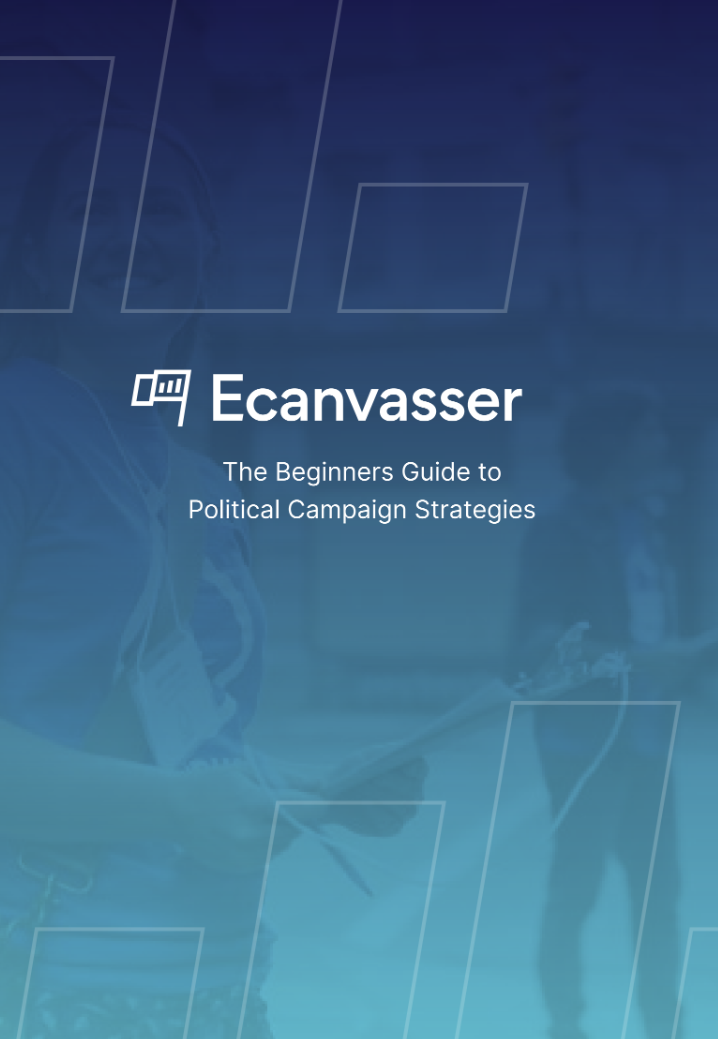Political campaign strategies aren’t one size fits all. What works for the candidate in Florida, may not work in New Hampshire. Strategies are unique to every campaign, this is why it is important to be aware of all the components that make up your operation early on.
Timeline
Campaigns are often full of difficult issues that need tackling. In efforts to avoid alienating people from your mandate, you need to make things as transparent as possible. Keeping things as clear cut and simple when mapping out your strategy is where you have a chance to gain ground over your opponents.
A great deal will happen between the beginning of your campaign and Election Day and with a little forethought and planning, you can be prepared for all the twists and turns and, in many cases, control the situation. Having contingency plans in place for every region you may want to canvass and having a fundraising plan ready to implement in the second quarter if money is becoming an issue are all things to have in your arsenal. You can never be too prepared, and so having your timeline envisaged will help greatly.
Test Everything
To ensure your strategy works, test it. Employ qualitative research to investigate language, and 'political' research to investigate obstacles, decision-making, attitudes of key individuals, potential allies and opponents.
Qualitative research should not be confused with quantitative opinion research. Quantitative or 'polling' research tells you how many people think something. Qualitative research tells you why they think something. The best-known type of qualitative research is 'focus groups' - i.e. mediated discussion groups run by a skilled mediator. This research is essential for getting beneath the skin of 'issues' and past the initial responses people will give based on trying to 'be helpful' to the questioner, what they've been 'told' to think about it in the press, or the influence of the group.
Team
Organisation - Engage supporters that will help you implement your plans. Strategies need to be implemented, do you have the team to realize your goals, eg, do you have a social media strategy person? How are you attracting new volunteers to your campaign on a daily basis?
All these questions need to be answered. Most campaigns start with a core group of 5 or 6 but soon grow to hit the hundred mark if you are lucky. During Election season, you can never have too much help and if you are organized in all other areas of your campaign, delegating work to new members should be no problem.
Airwaves
Media and how you will use it is very important when planning out your campaign strategy. News outlets, social media etc, all need to be considered when campaigning. Your strategy will be interpreted mainly through media so what is the level of access you want to give media to your campaign, what is your attitude to media, etc?
Remember voters are being bombarded with information every day. They get news on television and the radio, they get reports at work, they get advertisements all the time,and they hear that juicy piece of gossip about the neighbor down the street. Candidates think that their competition is the other person running for the same office when in reality their competition for the voter's attention is all the other sources of information the voter receives every day. Your campaign message has to break through that thick wall of other information
Find out more about Ecanvasser and what we have to offer below

Read our latest release, "The Beginners Guide to Political Campaign Strategies" where Ecanvasser details how a political operation, regardless of the size of the race, requires a lot of planning and thorough research.






.svg)



.svg)
.svg)